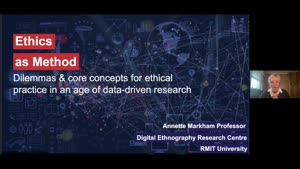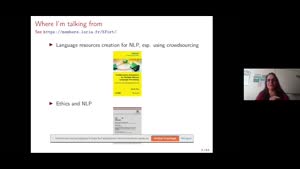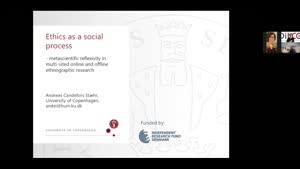The ordinariness of digital linguistic diversity in the Global South: DiLCo Lecture Series 2022 (12 May) - Sender Dovchin - Universität Hamburg
- Lecture2Go
- Videokatalog
- F.5 - Geisteswissenschaften
- Sprache, Literatur, Medien (SLM I + II)
- Digital language variation in context (DiLCo)
Videokatalog
The ordinariness of digital linguistic diversity in the Global South: DiLCo Lecture Series 2022 (12 May)
Recent debates of linguistic diversity have problematised paradigms such as bi/multilingualism and code-switching for reifying static language boundaries and for their inability to account for communicative practices constructed out of a diversity of linguistic repertoires. Instead, trans-perspectives have been introduced to capture the critical linguistic diversity, especially in the context of digital platforms. This emergent trans-tradition reflects the difficulty, if not futility, of demarcating linguistic features according to specific languages for the fluid movement between and across languages.
Yet, this recent tradition still tends to celebrate and thus exoticize the presumed digital linguistic diversity in and from the Global South, although it is indeed ‘quite normal’, ‘unremarkable’ ‘ordinary’, ‘basic’, ‘everyday’, and by no means a new phenomenon. In so doing, scholarship inadvertently constructs and exoticizes a linguistic Other whose digital linguistic diversity is expected to be made legible according to normative epistemologies of diversity.
This lecture is based on the premise that the analytic potential of the trans-tradition can be enhanced through a stronger focus on such practices as reflective of everyday, quotidian, basic, mundane, unremarkable, banal, and ordinary occurrences, rather than of peculiar, exotic, eccentric or unconventional ones. It is important to recognise that digital linguistic diversity in and from the Global South is neither to celebrate nor to deplore, but something to observe and examine with interest like anything else, as it is inevitable that peoples and cultures have always been mixing and mingling. I conclude that ‘linguistic ordinariness’ is rather ‘diverse’ – a necessary condition of ‘linguistic diversity’ is its ‘ordinariness’.
Dr Sender Dovchin is an Associate Professor and Principal Research Fellow and Director of Research at the School of Education, Curtin University, Australia. She is also a Discovery Early Career Research Fellow of the Australian Research Council. Previously, she was an Associate Professor at the University of Aizu, Japan. She has also been awarded Young Scientist Fellow (Kakenhi) by the Japan Society for the Promotion of Science. A/Prof Dovchin is an Editor-in-Chief of the Australian Review of Applied Linguistics. She was identified as “Top Researcher in the field of Language & Linguistics” under The Humanities, Arts & Literature of The Australian's 2021 Research Magazine and Top 250 Researchers in Australia in 2021. She has authored numerous articles in international peer-reviewed journals and authored six books with international publishers such as Routledge, Springer, Palgrave Macmillan and Multilingual Matters.
DiLCo Lecture Series 2022 aims to showcase cutting edge international research on digitally language and communication by both senior and younger researchers from across the world. We wish to present research that explores digital language and communication by drawing on key concepts and topics in socio-cultural linguistics, such as community, context, identity, mediated interaction, multimodality, and linguistic change. We particularly welcome presentations of innovative methods that cut across traditional disciplinary boundaries.
---
DiLCo (‘Digital language variation in context’) is a 3-year international research network initiated in 2021 at the University of Hamburg. The network brings together researchers from Europe and USA with expertise in computational, interactional, and ethnographic approaches to digital language and linguistics. It aims to provide a platform for the development of interdisciplinary ideas in digital language and communication research, and for early-career capacity building.

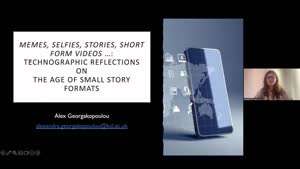
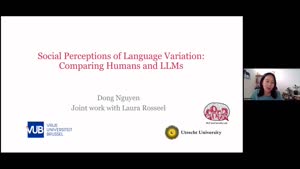
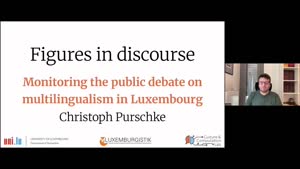
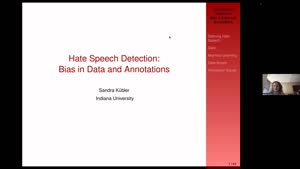
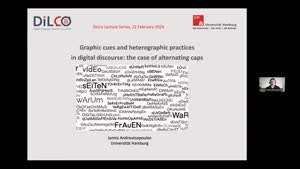
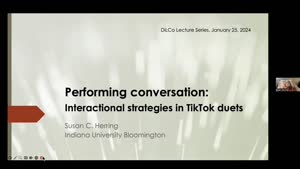
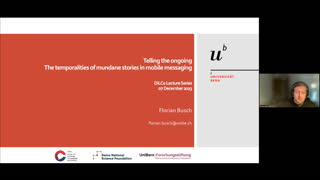
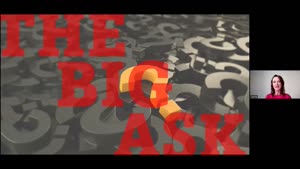
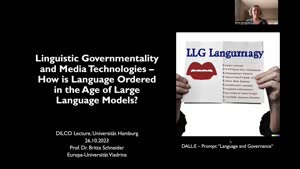
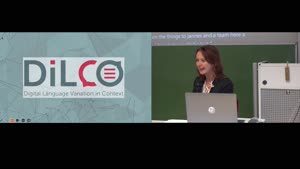
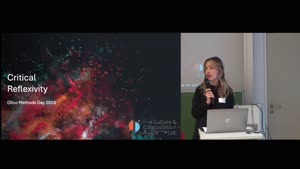
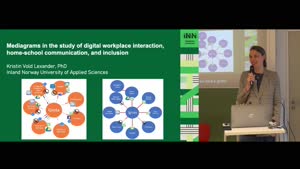
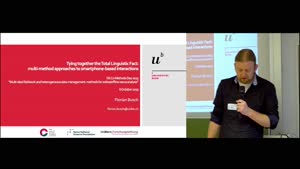
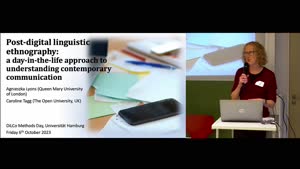
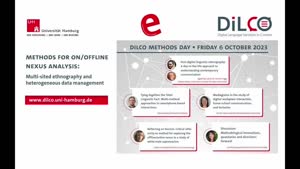
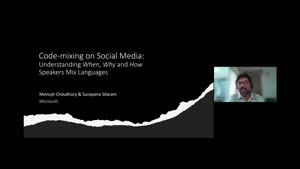
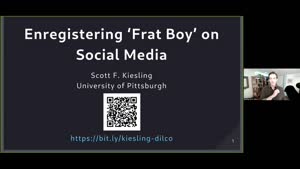
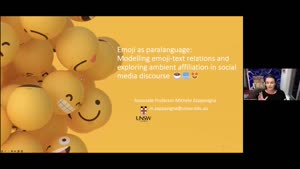
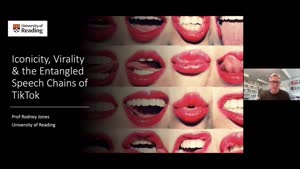
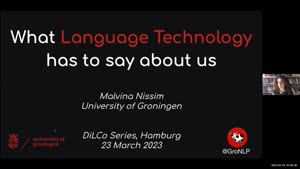
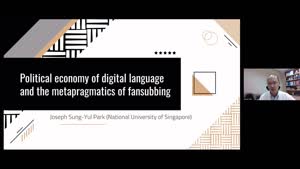
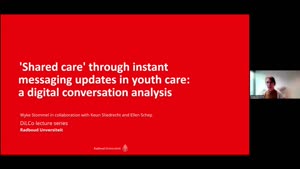
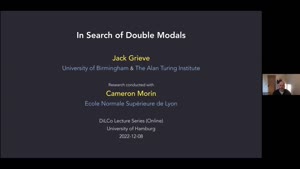
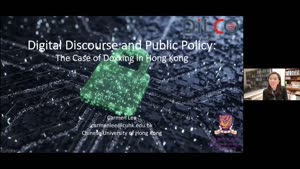
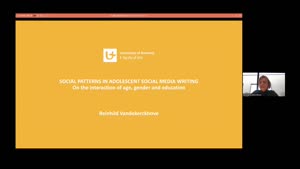
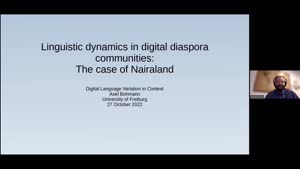
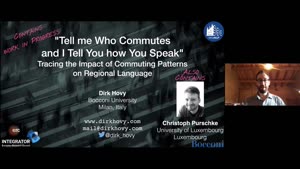
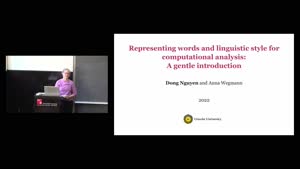
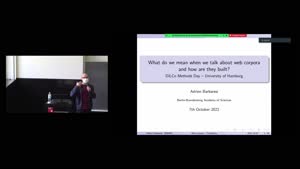
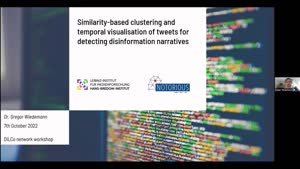
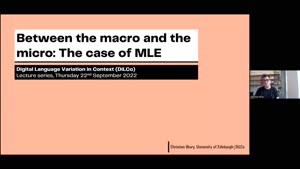
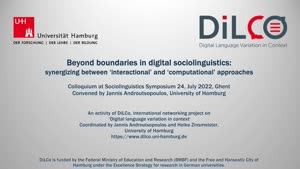
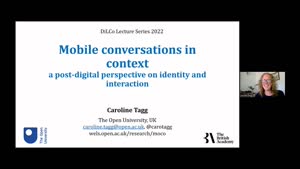
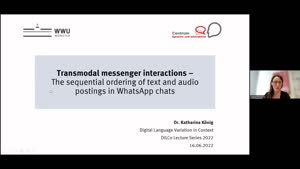
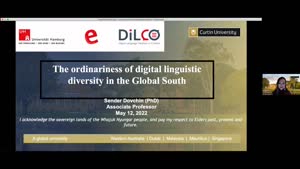
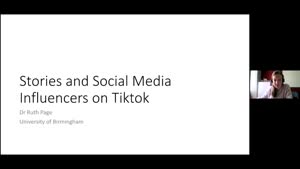
![Miniaturansicht - Graphic Prosody and political discourse on Greek Reddit [Presentation in Greek]](https://lecture2go.uni-hamburg.de/images/00.000_video-61074_2022-03-30_18-30_m.jpg?lastmodified=1663761108652)
